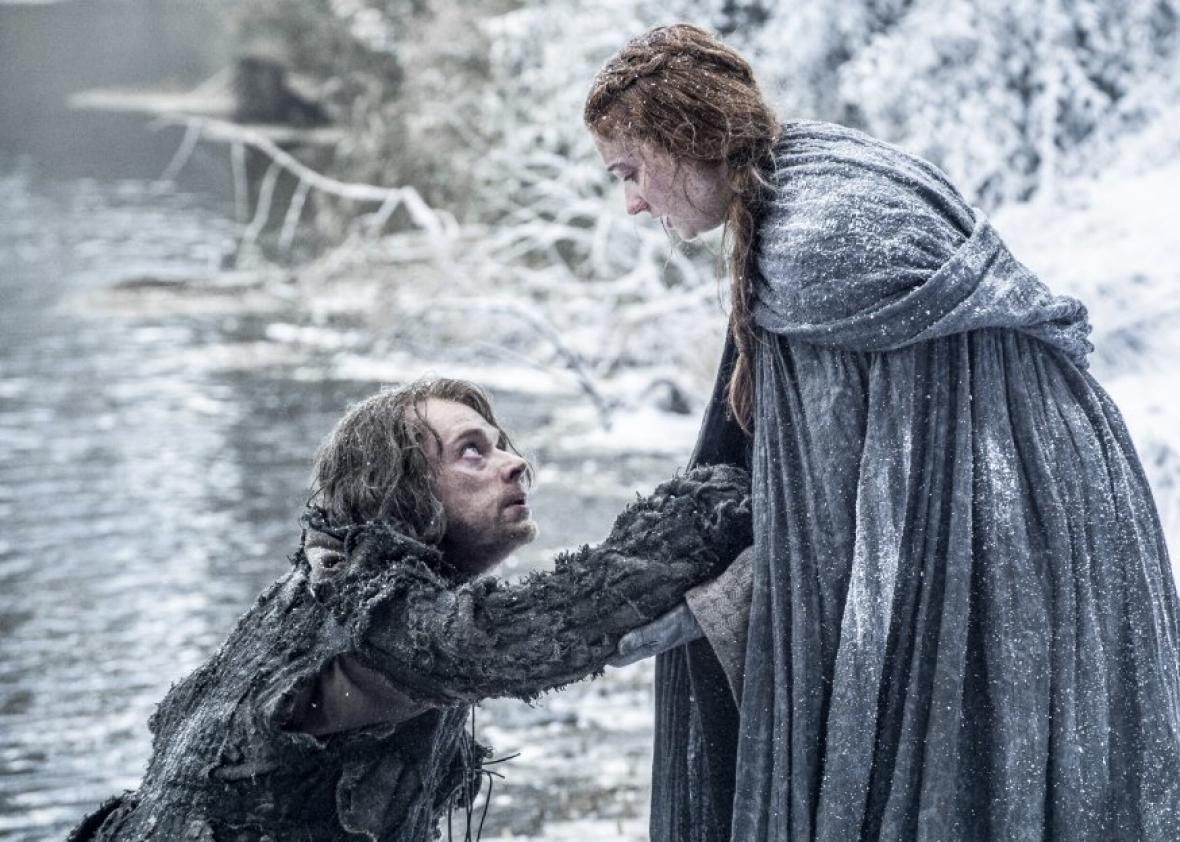For the past five seasons, I have watched Game of Thrones with a computer on my lap, ready and willing to Google any character, storyline, or plot twist that appeared on screen, to see how they played out in the books. If most people are spoilerphobic, when it comes to GOT, I’ve been spoilerphilic. I wanted to know everything in advance, as soon as I could know it, and I wanted to do that without having to read any of the books. (I read the first book, as part of TV critic due diligence, before the show began. Then I checked the thousand-plus page count on the other books and happily dove into the Wikipedia pages.) I spoiled myself on the Red Wedding and Joffrey’s death, Arya’s blindness and Cersei’s walk of shame. I didn’t know that Ramsay Bolton would rape Sansa Stark, because that didn’t happen in the books, and, honestly, I could have used some warning.
Yet despite actively, happily, willingly seeking out spoilers for Game of Thrones, I found myself unusually excited for Season 6, exactly because I have no idea what will happen in it. With Season 6, Game of Thrones is finally off book, having lapped George R.R. Martin’s slowly gestating A Song of Ice and Fire series. Finally, it seemed, anything could happen. It was only after watching the premiere, in which Tyrion and Varys gaze upon Daenerys’ fleet of ships, all aflame, and say “We won’t be sailing to Westeros anytime soon,” that I realized what I had been hoping would happen—now that the series is free from Martin’s endlessly proliferating imagination—is that it would cease spreading out and finally start drawing in, contracting all of its far-flung characters into some sort of conclusion. Alas, Dany’s not going to Westeros anytime soon. (In fact, she seems to be headed to a forced-retirement community for widowed Khaleesis.) The show may be more streamlined than the books, but it’s still got lots of plot to wind its way through.
The first episode was good and unsatisfying. At this point, Game of Thrones is an episodic TV show that has absolutely no use for the episode, which it treats like an arbitrary unit of time between opening and end credits. The show is made to be binged, chugged down in sufficient quantities to get full on the various characters. The cast is so big that in one episode, each main character only gets a scene or two. Some of the scenes in the first episode were great: Brienne and Pod coming to Sansa and Theon’s rescue was a galvanizing moment that also tied some loose characters together. The episode’s end, revealing Melisandre to be an ancient crone, was shocking without being violent or titillating. But everything that happens in Dorne still seems very far from the heart of the show. And I don’t know that there is any more to learn about the depths of Ramsay Bolton’s depravity. He already seemed like the kind of guy who would feed the corpse of the only person he genuinely cared about to some dogs.
And throughout the episode, Jon Snow was lying dead on a table, waiting for all the other characters to have their turn—you go Margaery, now you Arya, now Jaime you give a rousing speech to your sister-lover, now Daario you tease Jorah, now Jorah you show the audience your slow-growing deathly skin disease—before his comrades could get serious about resurrecting him. By the time Jon’s best shot at revival was flashing her ancient dugs, I really wanted to look up what was going to happen next. Instead, I’ll just have to wait for next week—by which time I’m sure I’ll be excited about Game of Thrones again.
